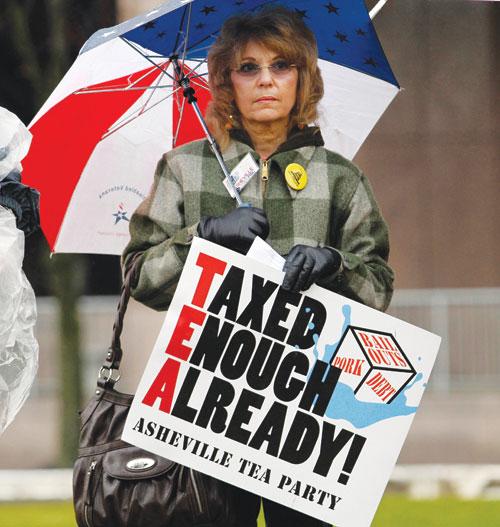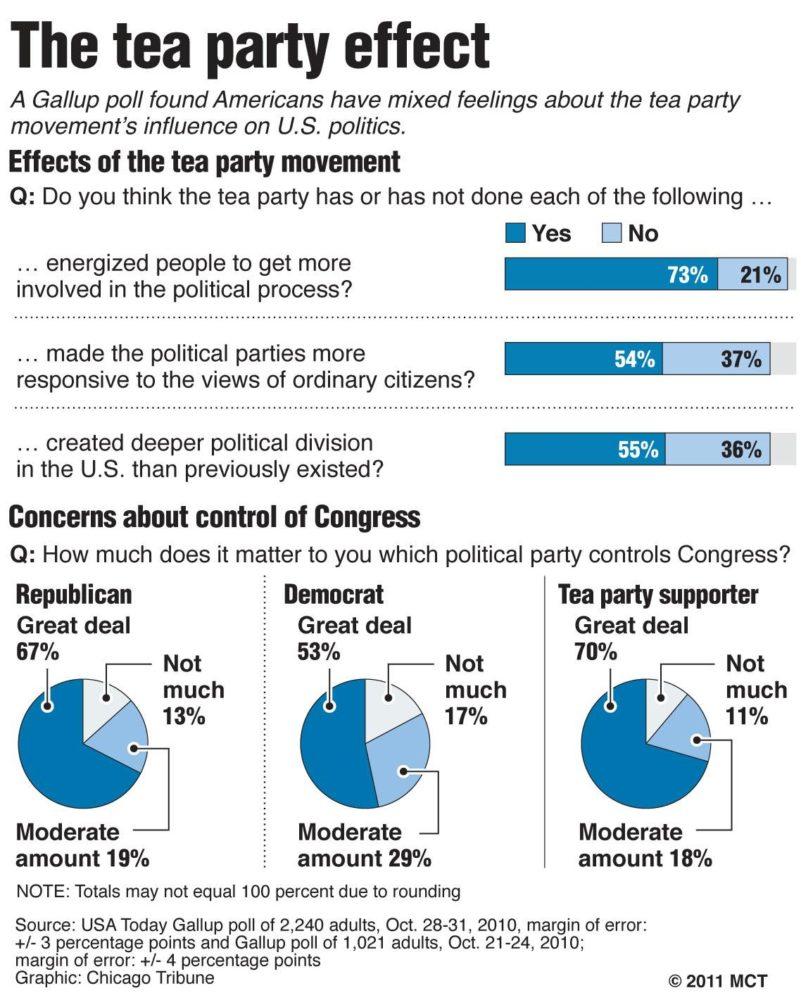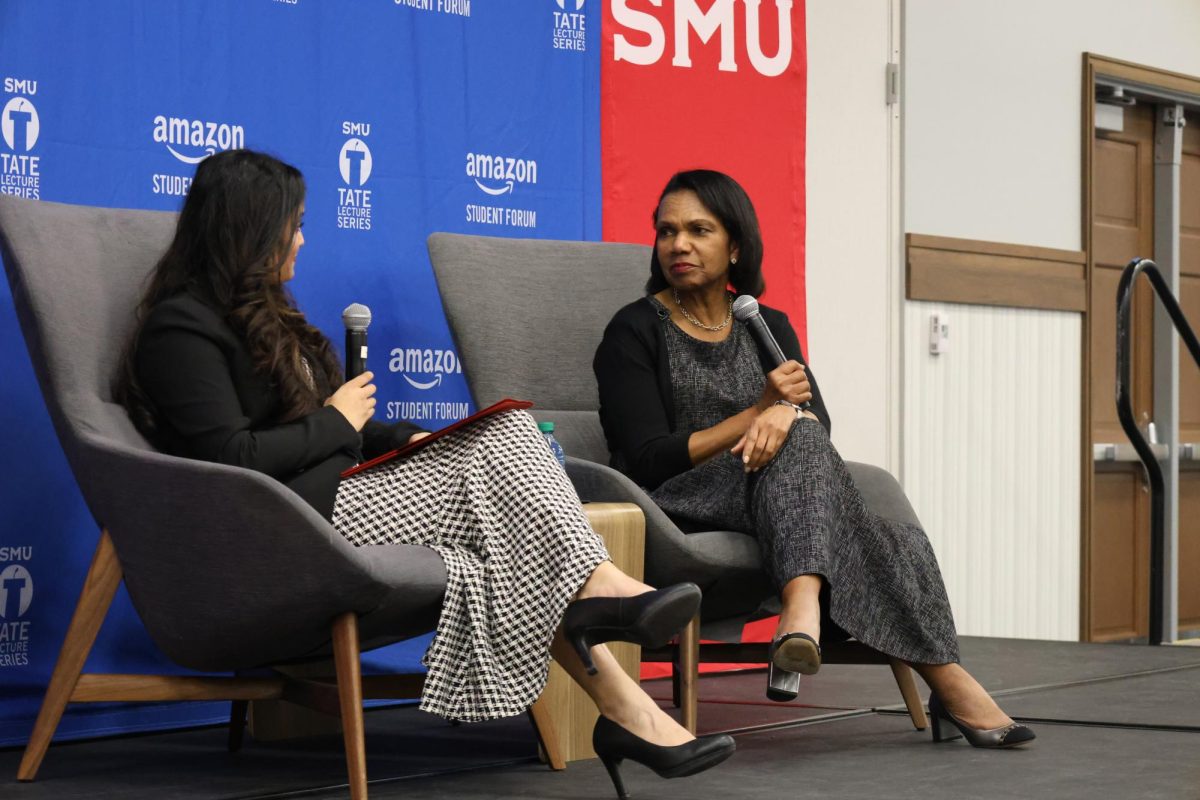
Jane Bilello of the Asheveille, N.C. Tea Party, demonstrates on the opening day of the North Carolina Legislature in Raleigh, N.C., Wednesday, Jan. 26, 2011. (JIM R. BOUNDS/The Associated Press)
The Tea Party has been shaking up the American political landscape since it came into being in 2009. While it helped the Republican Party rocket into the majority in November’s midterm elections, its permanent effect on American politics is yet to be determined.
Sanford V. Levinson, professor of government at the University of Texas, spoke to members of both the Tower Center Student Forum and the Tower Center on Friday, regarding the Tea Party and its rise to popularity.
Levinson said it was “way too early to tell” how long the Tea Party would last, or what form it would take in the future.
“One can imagine their taking over the Republican Party, so they won’t last because they really will become the Republican Party; one can imagine their being disillusioned with what they see and retreating into sullen unhappiness; one can imagine their going the third party route,” Levinson said in a post-lecture interview with The Daily Campus.
Cal Jillson, professor of political science at SMU, disagrees. He said that once “conditions improve” and the economy gets back on track, the United States will “return to its traditional Republican v. Democrat boundaries” and the Tea Party will fizzle out.
Ken Emanuelson, an active mem-ber and volunteer with the Dallas Tea Party, said that kind of talk is “wishful thinking,” and he believes the Tea Party can only gain in popularity, saying he hears of new Tea Party organizations “sprouting up” constantly.
“A group that continues to grow will have more of an effect tomorrow than it had yesterday,” said Emanuelson.
Recent polls conducted by Gallup suggest that the American people have mixed feelings about the Tea Party’s popularity. While they feel the Tea Party has “energized people to get more involved in the political process,” they also feel it has “created deeper political division in the U.S. than previously existed.”
The “deeper political division” may be a result to what many feel is a heightened sense of partisanship and increased political rhetoric fueled in part by the Tea Party.
Chris Salinas, professor of communications at SMU, said he feels the hostile political climate really showed during the healthcare reform townhall meetings put on by the Tea Party as they “provided a forum for Tea Partiers to express their anger.”
He also said that the wide-reaching media fuels intense rhetoric.
“I think the news media and the Internet enable those speech acts to have more impact because it diffuses them to a wider audience,” Salinas said. “Protesters, who obviously want to get their message to as many as possible, adopt extreme messages in order to gain the attention of the news media and the Internet – it becomes a cycle.”
Many say Sarah Palin and Michelle Bachmann, who have become de-facto leaders of the Tea Party movement, are guilty of this kind of attention-seeking rhetoric.
Jillson said both have the ability to “capture and channel a certain angst at large in this country, but neither knows enough history or policy to describe a plausible path forward.”
Levinson agrees with this common criticism of the Tea Party, and said the he personally doesn’t understand the hype that loyal Tea Partiers give to Palin.
“There are many of us who are amazed that Sarah Palin was ever taken seriously for a single minute,” Levinson said.
Levinson also said he believes Palin to be “astonishingly ignorant…of the basics of economics, politics and American history. I mean whatever it is, this is not a person whose views are the product of either significant experience or careful study.”
Levinson contrasted “ignorant” Palin with fellow well-known Tea Partier Rand Paul, whom Levinson called a “well-read Libertarian.”
Levinson said politicians like Palin and Bachmann, who subscribe to the most extreme views of the Tea Party, alienate more moderate members of the Tea Party and may end up being the reason for a decline in the Tea Party popularity.
Emanuelson disagreed, saying that the only people who would be “turned off” by Palin’s statements are those who “aren’t paying attention, which is unfortunately most Americans.”
“The reality is that nobody leads the Tea Party, whether it’s Sarah Palin or Michelle Bachman or Glenn Beck… I don’t even know if any of those people claim to lead the Tea Party,” Emanuelson said.
He said while many view Bach-mann’s response to the State of the Union as the official response to the Tea Party, it wasn’t. It was for the Tea Party Express.
“It certainly wasn’t on behalf of the Tea Party movement, and if it was, it certainly wasn’t legitimately on behalf of the Tea Party movement,” he said.
But regardless of its official status, many view the separate response from the Republican Party as a symbol of turmoil within the Republican Party caused by the Tea Party, Levinson included.
Levinson said the most notable way in which Republicans split from the Tea Party is “the extent to which they are willing to take an immediate hatchet to the debt, and to do quote ‘whatever is necessary’ to go after it.”
He said this would become apparent in the upcoming vote to increase the debt ceiling. Levinson believes Republican leaders will join Democrats in extending it, and Tea Party members will hold strong in voting against it.
This division will lead to a particularly divided Republican Party going into the 2012 presidential election, Levinson said. He also believes that the united Democratic Party will get to watch the G.O.P. “tear itself apart.”
“I think, for Democrats, it will be an enjoyable spectacle to see the Republican Party really at each other’s throats,” Levinson said.
For further information and to vote in a poll regarding the Tea Party, visit our politics blog at www.politically-inclined.com

To vote in this poll, visit our politics blog at www.politically-inclined.com

(MCT Campus)














